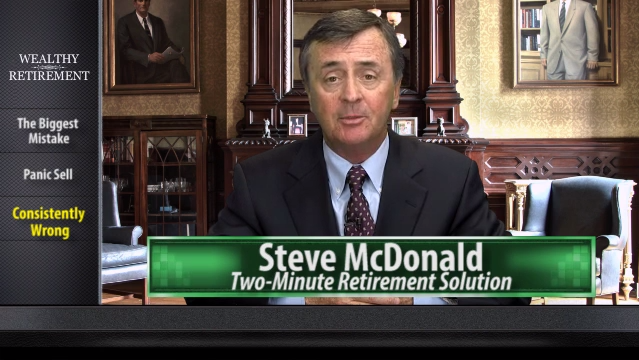Today is a “lecture you guys day,” so get ready.
Nobody can seem to talk about anything but a bubble in stocks, or stocks are overvalued, or the similarity between 1987 and now.
So what!
If you have been buying the ideas I have talked about here, it doesn’t matter what the indexes do or, for that matter, how much your stocks and bonds drop when the sell-off finally happens. And it will.
The biggest mistake anyone can make, especially a retired person, is to panic sell when the market dips, which it has to do at some point.
It only serves to rack up losses, and you lose on two planes.
First – the obvious – you sell low. If you wait for the market to dip and then sell you have to lose.
Second, almost everyone misses the rebound, which, if you look at the history of the markets, always happens. Yes, even after 2008. Have you seen the indexes lately?
All it takes is time, which we have, and planning.
No, not more financial planning… A plan for what you will do when the markets have to sell-off.
My plan?
I keep a wish list of stocks I want to buy that I think are overpriced at the moment. Overpriced is a relative term, but I use the 200-day moving average as a rough guide. If the price is way above the curve, I wait.
But this is not so much not about getting bargains as having a mindset about the market that is focused on the facts that sell-offs have to happen and will. Not being mentally prepared for them or, worse, thinking you can jump out in time to avoid them is bordering on moronic.
No one ever made money by selling in a panic. And no one can know when to jump. Believe me, I have nothing to gain by misleading you.
A recent report by a behavioral research group in Boston said it best.
The small investor consistently guesses wrong on both the upside and the downside of the market, and the guessing has gotten progressively worse over the last 20 years.
And it is happening at a time when the average guy is pulling the trigger on investment decisions that directly affect his retirement funding.
Get your head straight about sell-offs because, after a five-year run with virtually no corrections, we have to have one.
Whether your plan is to buy your favorite stocks at discounts or to simply turn off the TV and go hit the ball, have a plan that includes something other than selling at loss.
